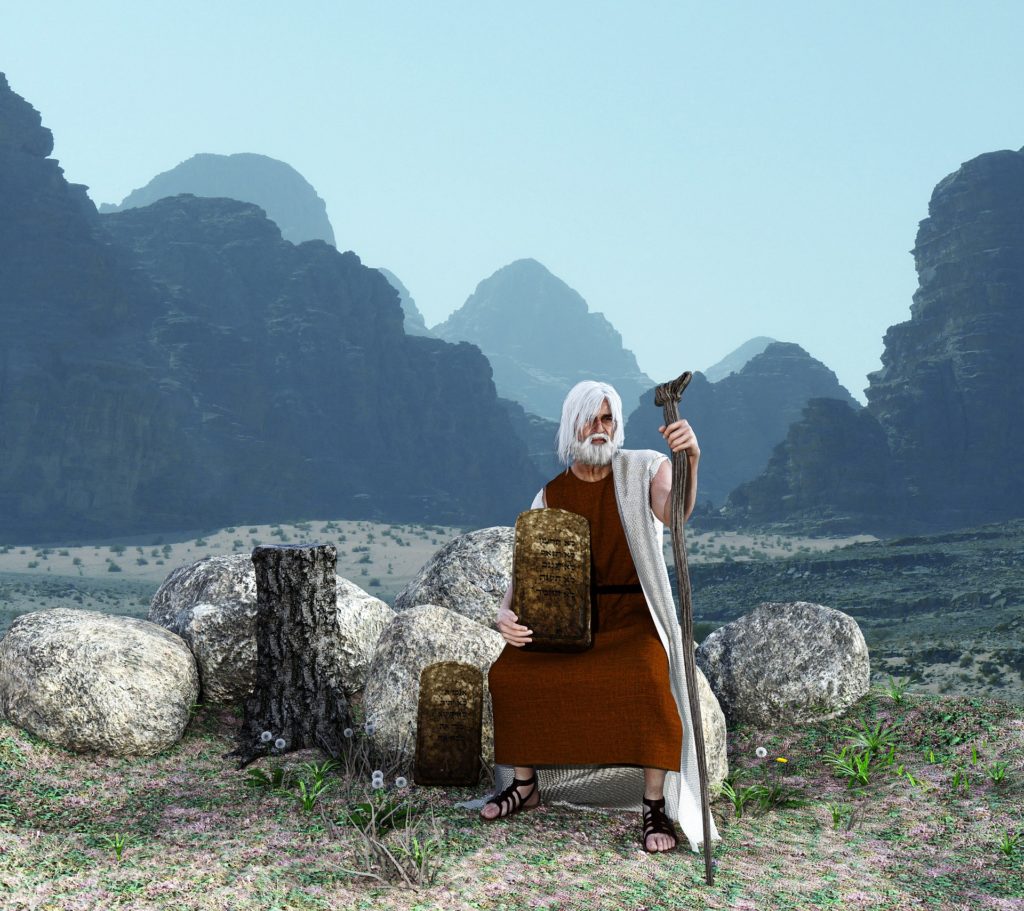
There is an honorable place that is reserved for Moses in the history of the people of Israel. He is considered as one of the central figures in the Hebrew Bible and their salvation history. Other than Jesus, Moses might be the most well-known character in the Bible. It can be surprising to know that Moses also considered as a key figure in Islam, which calls him as Musa. The Holy Koran, the sacred Scriptures of the Muslims refers to Moses 502 times, more than any other prophets. Even in Bahai faith, Moses is revered as an important figure.
According to the Hebrew Bible, Moses was rescued and given an Egyptian name, Moshe (meaning, “Drawn out of the water”) and reared as an Egyptian in the Royal household by the daughter of Pharaoh. We do not know much about what he was taught or how he lived in the Royal household during his childhood. But, one thing we can be certain that he gradually began to identify his Israelite heritage as he reached his adulthood.
When Moses was fully grown, his frustration towards injustice done to his fellow Jewish nation erupted in him when he saw how the Egyptians were trying to oppress them as slaves and how the Hebrew slave workers were treated mercilessly by the Egyptian task masters. The length of the oppression of Hebrew people and their painful captivity that gradually increased under Egyptians would have been more than 200 years. At one point, he had to defend a Hebrew slave worker by killing an Egyptian slave master who was beating the slave. Fearing that his action of killing an Egyptian would come to the attention of Pharaoh, he fled for safety from Egypt (Ex 2:15ff).
After fleeing into the desert, Moses lived in exile finding refuge in the land of Midian, a region several hundred miles east of Egypt on the other side of the Sinai Peninsula. It was a region of a tribe that had ancient blood ties to Abraham. It is not exactly certain how long he lived in Midian. But, it is said that he joined a nomadic tribe as a shepherd and later got married to Zipporah and had a son.
While he lived in exile in Midian, the Pharaoh in Egypt died and he was succeeded by another Pharaoh. Then, it appeared that the oppression of the Israelites in Egypt grew worse and worse. And the Lord heard the cry of His oppressed people and remembered His covenant with Abraham, Isaac, and Jacob (Ex 2:23-25). Did that act of remembering mean that God had forgotten about His people, Israel until that time? Surely, not and here the remembering means that God was about to act on their behalf. And for Him to act in order to save His people from oppression, He needed a human mediator. Hence, He called Moses to lead His oppressed people to freedom.
God could have chosen someone else for this task of freeing his oppressed people. But, God knew about this defender who defended the Hebrew slave (Ex 2:11ff), who tried to make peace among the Hebrews (Ex 2:13-14), and who even defended the seven daughters of the family of the priest of Midian, Jethro (Ex 2:15ff). According to the Russian Jewish intellectual, Hebraic Ethics Philosopher, and the journalist Ahad Ha-am, those above stated acts of justice could be what lead God to choose Moses. Again, it seems that God miraculously saved Moses as a Hebrew child to grow up and to get trained in an Egyptian way in order to lead His people to freedom. He appeared to grow up with knowledge of both Egyptian and Canaanite practices for the plan of God.
— Fr. Niranjan Rodrigo, Ph.D

You must be logged in to post a comment.